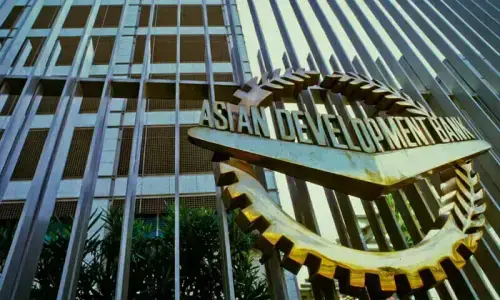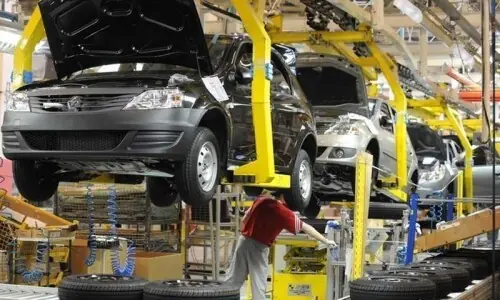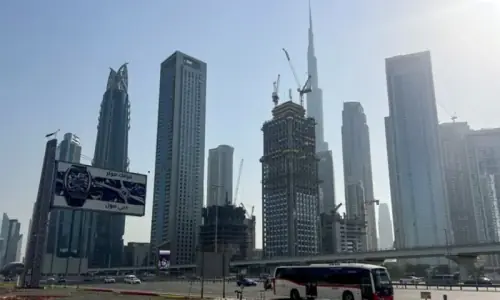
THE present political scenario and available space for practising politics is said to be less than ideal in Pakistan these days, but those familiar with the history of Pakistani politics will vouch for the fact that this is an oft-repeated story. One could be proud that the making of Pakistan was a direct outcome of an organised political struggle. It was steered by capable political leadership, and sustained through mobilisation of masses with the efforts of students, faith leaders, community elders as well as the convincing power of newspapers and magazines.
The All India Muslim League (AIML) was a well-knit political force with an effective party structure at all levels including the students and children (Bacha Muslim League). The AIML leadership was also able to enter into effective negotiations with the colonial British regime and the competing Indian National Congress. Through pure political acumen, the AIML leadership was able to win many arguments and achieved its goals. Most of the politicians who participated in this process were fired by zeal to serve their people without any intention for personal gains. Mr. Jinnah himself spent hefty funds from his own personal pocket to cover the cost of various types of logistics of the party as well as the political struggle. The Raja Sahib of Mehmoodabad was one of those public-spirited leaders of AIML who spent very generously from his princely fortunes for the party interest. However, the real test of the AIML was to come after the creation of Pakistan.
The AIML leadership faced many challenges including the rehabilitation of incoming migrants, security threats at the borders, fragile economy, precarious status of many princely states and a broad-based administrative transition. Unfortunately, the Muslim League was not able to come out victorious on many of these counts.
The leadership, many argue, took certain steps for which the nation had to pay a price in the long run. When Mohammad Ali Jinnah took over as the Governor-General of the dominion, he kept the AIML leadership in his person. While it was understandable in those specific circumstances, this did lead to future episodes of practising authoritarianism in the garb of democracy.
Then there were certain administrative steps that caused the people of East Pakistan to suspect the intensions of League leadership in the West Pakistan. During the 1950s, the elections were held in East Pakistan. The United Front, which was a coalition of various political parties including the Awami League, Krishak Praja Party, Ganatantri Dal (Democratic Party) and the Nizam-e-Islam Party, comprehensively defeated the League and became the custodians of provincial government.
While democracy is an integral component of statecraft, it is nowhere to be found within political parties. In fact, it has never been there which is as sad as it is ironic.
In the final analysis one can draw several lessons from the swift decline of the Muslim League. The inability to retain the momentum of the Pakistan Movement, gradual alienation from the masses and their issues and incapability to practise internal democracy were some of the factors which led to the party’s decline. In the times ahead, the League re-incarnated itself either as a rubber stamp of military dictators or as an off-shoot of similar kinds of regimes. Examples include the Convention Muslim League during the Ayub period, a post facto Muslim League during the Zia era (formulated after the party-less elections of 1985 within the assemblies), Pakistan Muslim League Quaid-i-Azam during Musharraf regime and All-Pakistan Muslim League by General Musharraf (when he left presidency). Pakistan Muslim League-Nawaz (PML-N) has the same heritage, but it did outgrow its original orientation and questioned the establishment repeatedly.
The 1960s marked the emergence of a new political force. Pakistan Peoples Party (PPP) was founded under the overall leadership of Mr. Zulfikar Ali Bhutto in 1967 in Lahore. Very capable political thinkers such as Mr. Jalaluddin Abdur Rahim (popularly called as J.A. Rahim) and technocrats such as Dr. Mubashir Hasan were amongst the founders. This party came up with left of centre political ideology. The party manifesto was drafted by Mr. J.A. Rahim. It entailed Islam as their religion, socialism as their approach and equality and egalitarianism as the central pivot of policy. The party also gave the political slogan ‘bread, clothing and shelter’ as their electioneering slogan.
During the 1970 general elections, the party won majority in West Pakistan but was not able to win any seat in East Pakistan. The people expected that this party, which came to power in 1971, would practise democratic traditions in all the affairs of statecraft. Unfortunately this was not to be. The party leadership soon began to show dictatorial leanings.
The dismissal of Balochistan government under Sardar Attaullah Mengal of National Awami Party(NAP), the banning of NAP, lodging of various cases against Khan Abdul Wali Khan, Sardar Attaullah Mengal, Sardar Kher Bhuksh Marri, Mir Ghaus Buksh Bizenjo and many of their comrades is indeed a dark episode in our political history. The mysterious murders of Mr. Hayat Muhammad Khan Sherpao, Abdul Samad Khan Achakzai and Nawab Muhammad Ahmed Khan were also tainted chapters of political conduct in those days.
Despite the tragic assassinations of many of its top leaders, PPP prefers to run under a single clan. Though this party claims to represent various cross-sections of the masses, its ranks are entirely filled by powerful landlords, wealthy business men and other sections of the affluent class.
None of the parties discussed so far display any semblance to an ideal political party. However the creation and running of such a party is not impossible. There are several fundamentals that may be looked at for the possible conception of such a political machine that can mobilise people and help address their perennial problems.
One of the first pre-requisites of a political party is to be internally democratic. It is most ironic to note that our political parties crave for democracy in the country but are entirely reluctant to practise the same within their own folds. They run through handpicked leaders who constitute what is sometimes called as central executive committees or central working committees or similar dispensation. Even the party leaders at the level of provincial or district level are directly appointed without any internal election. Pakistan Tehreek-e-Insaaf (PTI) made a credible attempt of holding intra party elections, but it had its own problems to grapple with. Perhaps the only party that holds any credible elections of its office-bearers is the Jamat-e-Islam (JI).
The next fundamental pre-requisite is to keep the party funds transparent and visible. In the present day politics of Pakistan, one hardly comes to know who funds party activities, how and through what means. Once the election season arrives, the potential candidates line up with their political and financial credentials before the party chiefs. The most resourceful often wins the party ticket and contest the elections by spending on his own.
While the election commission receives the expenditure statement, it is generally believed that the real spending is more than declared. It will be useful for the Pakistani politics that a financial mechanism is devised where funds are voluntarily deposited in visible party accounts and judiciously spent. Conservative and Labour parties in the UK or Democratic and Republican Parties in the USA manage funds in a corporate style. When financial management and practice of transparency within the parties’ hall be strong, they shall be less vulnerable to witch-hunting and persecution from non-democratic forces.
Political parties are not simply outfits that are cobbled together to participate in elections alone. They have vital national interests to safeguard and provide solutions to complex social, economic and technical problems. They need think-tanks to help them with knowledge and ideas. In the present political culture of today, one finds scores of party loyalists defending the follies of senior political leaders ad nauseam but without proper reasons and logic.
There are very few leaders who can be entrusted complex professional tasks related to performance sectors and ministries. It makes one reason that for every fault and mishap, an inquiry is ordered results of which hardly resolve the actual problem. The country faces many challenges. Economic downturn, climate change, fast pace of natural population growth, high urbanisation rate, possible food insecurity, declining competitiveness in international markets, severe challenges for Pakistanis who wish to travel abroad, limited opportunities of employment and entrepreneurship are some of the mentions of this long list of hurdles faced by the country.
They can only be addressed if and when our political parties either develop a knowledge and idea generation apparatus within their own party structures or reach out to such outfits which have the potential to serve in this regard.
A political party draws strength from multiple cross sections of the society. A well-represented party is the one that has presence amongst labourers, business men, professionals, women, students, all geographical units of the country and more.
In other words, the political parties should make attempts to extend the benefits of democratic practices in each layer of the society. Since 1984, the student unions in our country have been banned from campuses. In this day and hour of Pakistani society, bulk of the population belongs to young people. It will be a national tragedy if such a vast number of people do not learn politics as a way of public service.
It is often feared that revival of student unions shall cause return of violence. This is only partly true. A creative system and procedure may be formed to make student unions function without any recourse to violence. Similarly, democracy among labourers shall help empower them for their own good and betterment of the country. All of these avenues shall be very useful in making democracy relevant to the statecraft and developing capable leadership for running the country tomorrow.
The writer is Professor and Dean, Faculty of Architecture and Management Sciences, NED University of Engineering and Technology, Karachi.

































